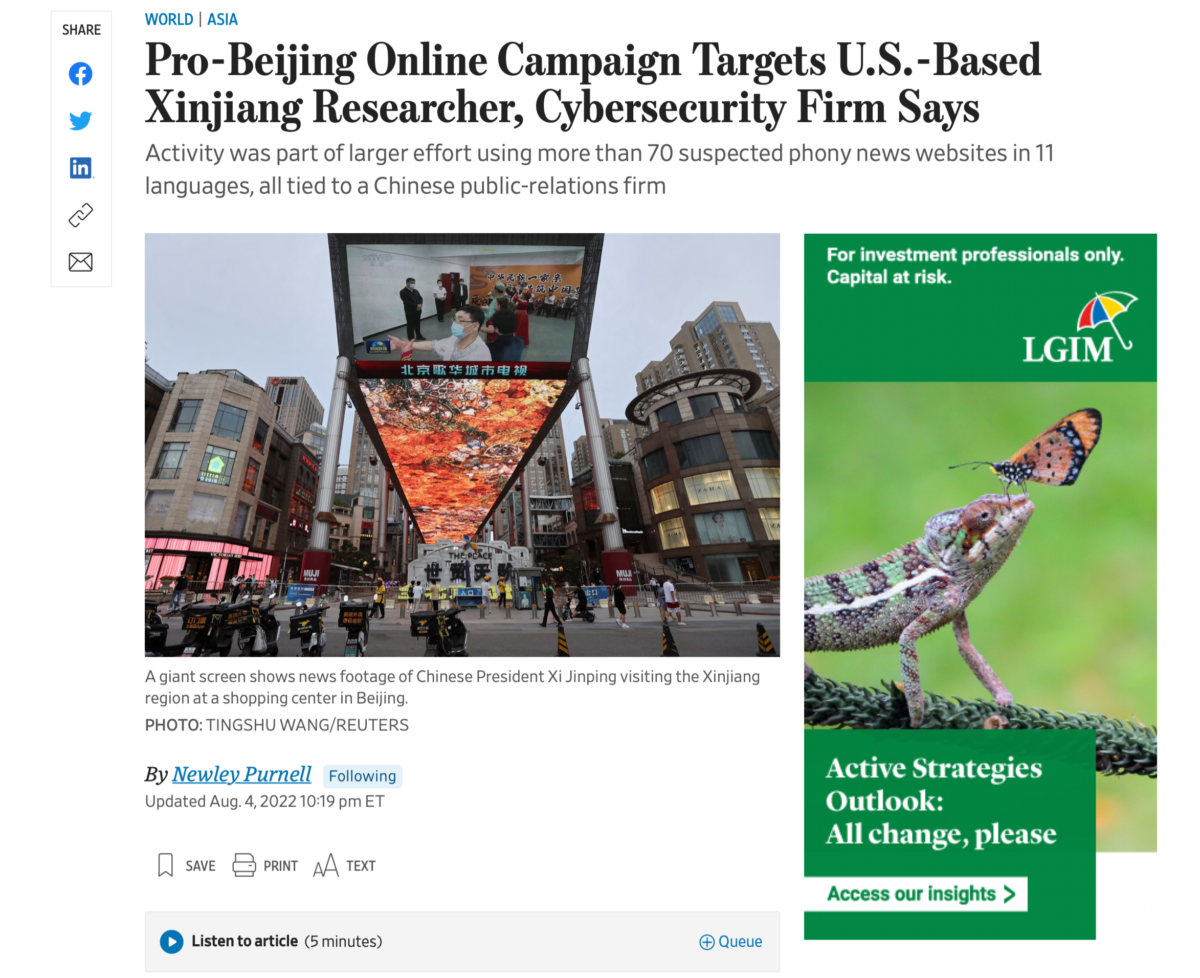That’s the headline on my newest story, out Thursday. It begins:
HONG KONG—A pro-Beijing online propaganda campaign has used phony websites and social-media posts to try to discredit a prominent German anthropologist who has investigated China’s crackdown on Muslims, according to cybersecurity researchers.
The activity, which dates to last year and continues, is part of a complex effort to push pro-China narratives using more than 70 suspected inauthentic news websites in 11 languages, all tied to a Chinese public-relations firm, according to a new report made public Thursday by the U.S.-based cybersecurity firm Mandiant Inc.
There is no evidence linking the activity to the Chinese government, Mandiant said, but the public-relations firm advertised its services as “positive energy packages.” State media in China have used the term “positive energy” to refer to the dissemination through social media of messages that promote Beijing’s views and policies.
To target the anthropologist Adrian Zenz, who has sifted through large numbers of Chinese government documents to illuminate the mass detention and policing of Turkik Muslims in Xinjiang, the campaign manufactured website articles and a December Twitter post. The tweet contained what Mandiant calls three fabricated letters purporting to show Mr. Zenz has received funding for his research from Sen. Marco Rubio (R., Fla.) and Steve Bannon, a former adviser to President Donald Trump.
